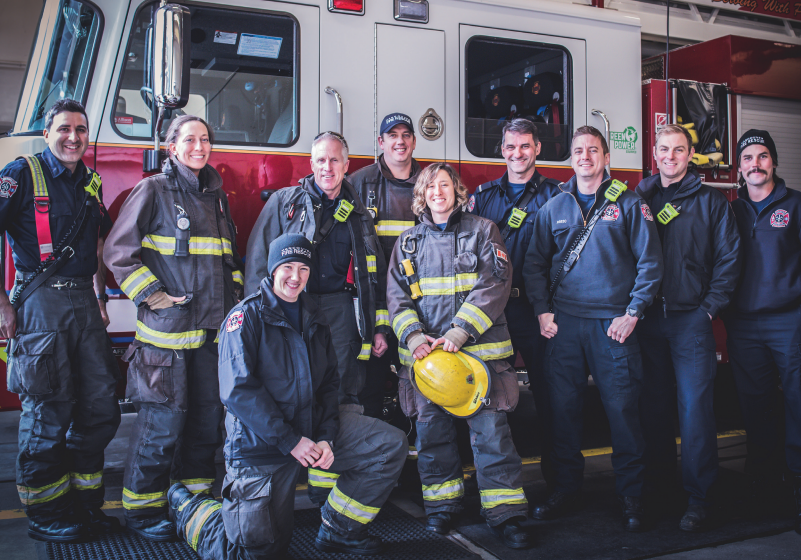Menu
Close

Starting Strong: Embracing Mental Resilience for First Responders in 2024
Jan 22, 2024
As first responders continue to navigate the complexities of their demanding roles, the importance of mental resilience becomes increasingly evident. The Resilient Minds® program, a peer-led initiative by the Canadian Mental Health Association (CMHA), exemplifies the power of proactive mental health care. Launched in 2016 and originally designed for fire fighters by fire fighters, it has now been adapted to embrace a broader range of first responders, including Indigenous First Responders and Francophone fire fighters. This adaptation not only recognizes the universal need for mental fortitude but also thoughtfully considers cultural and community-specific needs.
The Imperative of Mental Resilience
“Mental resilience is essential in the high-stakes profession of first responders,” explains Judy Gray, Director of Mental Health Promotion, CMHA Vancouver-Fraser Branch. “It’s about equipping these professionals with the ability to navigate through adversity, maintain their well-being, and effectively serve their communities.”
Mental resilience is crucial for everyone, but it is particularly vital for first responders. It directly impacts their ability to cope with daily stressors and traumatic events encountered in the line of duty, allowing them to maintain well-being. Resilience doesn’t erase stress or life’s difficulties but instead provides tools to navigate and emerge stronger from these challenges.
Here are Five Steps to Bolster Your Mental Health Resilience in 2024
You can work to build your psychological strength this year with these five actionable steps:
Engage in Regular Self-Assessment: Continuously monitor your mental state and acknowledge any signs of stress or trauma. Self-awareness is the first step in seeking timely support and preventing burnout.
Establish a Support Network: Connect with peers and loved ones who understand the unique challenges of first responder roles. A robust support system can provide comfort and practical advice in difficult times.
Develop Healthy Coping Mechanisms: Identify and practice healthy coping strategies such as mindfulness, exercise, or engaging in hobbies. These activities can provide a mental break and help manage stress.
Prioritize Physical Health: Understand that physical and mental health are intrinsically linked. Regular exercise, adequate sleep, and a balanced diet can significantly impact mental resilience.
Participate in the Resilient Minds® Program: “The Resilient Minds® program has been transformative for fire fighters,” says Steve Fraser, Lead Instructor. “It provides not just knowledge, but practical tools and a supportive network that reinforces their ability to handle the psychological demands of their job.”
Why Resilience Matters Now More Than Ever
In the demanding and often unpredictable world of emergency response, mental resilience is a necessity. It endows first responders with the psychological strength to face each day’s challenges, ensuring effective performance and mental health maintenance. Ultimately, resilience is key in helping them return home safely to their families.
A Fresh Start
This year offers a fresh opportunity to prioritize mental resilience, acknowledging its critical role in the lives of first responders. Engaging in programs like Resilient Minds® is more than just training; it’s an investment in personal well-being and professional excellence. Embracing this journey towards stronger mental health underscores the essential role of resilience for those dedicated to serving others.
Let’s collectively commit to fostering an environment where mental resilience is prioritized and supported. For first responders ready to take this step, the Resilient Minds® program awaits—a pathway to not just surviving but thriving in the face of adversity.
Take Action
Take that first step today. Sign up to find a Resilient Minds® course in your area, or learn how you can host a course for your peers.
